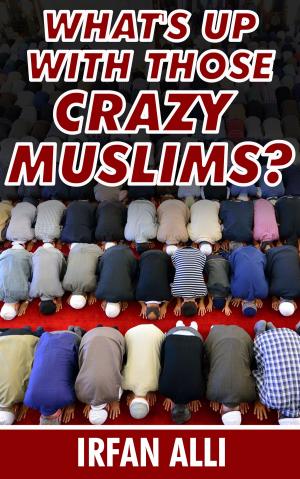In Search of an Economic Quantum In the World Economy.
Business & Finance, Economics, Econometrics, Nonfiction, Social & Cultural Studies, Political Science, International, International Relations| Author: | Aline de Valdomond | ISBN: | 9781456614294 |
| Publisher: | eBookIt.com | Publication: | August 7, 2013 |
| Imprint: | eBookIt.com | Language: | English |
| Author: | Aline de Valdomond |
| ISBN: | 9781456614294 |
| Publisher: | eBookIt.com |
| Publication: | August 7, 2013 |
| Imprint: | eBookIt.com |
| Language: | English |
Considering the World Gross Domestic Product WGDP as a representation of all the production by humankind, is it possible to define a smallest common quantitative measure, an «economic quantum» at an individual level, whose aggregate will lead to the word GDP ?
Is this economic quantum the GDP by an individual, produced using his sole physical forces of some 180 kWh/year ? Or is this «economic quantum» the GDP of an ancient Roman or Greek democratic citizen with his 100 slaves, with 15 000 kWh/year ? In any case, the average individual today in Europe uses 47 000 kWh per year, which is much higher than expected if each citizen had only 100 «virtual slaves» at his disposal.
Written by a non-specialist, a «scientific economy» student, this essay is a kind of visit through the arcanes of modern finance. It reviews elements of economic theories, applies a historical perspective, reviews the link between population, economy and ecology, and the question of the ecological balance, discovers systemic «economic wars», see why the current institutional and legal setting is inadequate, then derive a few practical aphorisms and a speculative model of a world organisation.
Is this economic quantum the GDP by an individual, produced using his sole physical forces of some 180 kWh/year ? Or is this «economic quantum» the GDP of an ancient Roman or Greek democratic citizen with his 100 slaves, with 15 000 kWh/year ? In any case, the average individual today in Europe uses 47 000 kWh per year, which is much higher than expected if each citizen had only 100 «virtual slaves» at his disposal.
Written by a non-specialist, a «scientific economy» student, this essay is a kind of visit through the arcanes of modern finance. It reviews elements of economic theories, applies a historical perspective, reviews the link between population, economy and ecology, and the question of the ecological balance, discovers systemic «economic wars», see why the current institutional and legal setting is inadequate, then derive a few practical aphorisms and a speculative model of a world organisation.
Considering the World Gross Domestic Product WGDP as a representation of all the production by humankind, is it possible to define a smallest common quantitative measure, an «economic quantum» at an individual level, whose aggregate will lead to the word GDP ?
Is this economic quantum the GDP by an individual, produced using his sole physical forces of some 180 kWh/year ? Or is this «economic quantum» the GDP of an ancient Roman or Greek democratic citizen with his 100 slaves, with 15 000 kWh/year ? In any case, the average individual today in Europe uses 47 000 kWh per year, which is much higher than expected if each citizen had only 100 «virtual slaves» at his disposal.
Written by a non-specialist, a «scientific economy» student, this essay is a kind of visit through the arcanes of modern finance. It reviews elements of economic theories, applies a historical perspective, reviews the link between population, economy and ecology, and the question of the ecological balance, discovers systemic «economic wars», see why the current institutional and legal setting is inadequate, then derive a few practical aphorisms and a speculative model of a world organisation.
Is this economic quantum the GDP by an individual, produced using his sole physical forces of some 180 kWh/year ? Or is this «economic quantum» the GDP of an ancient Roman or Greek democratic citizen with his 100 slaves, with 15 000 kWh/year ? In any case, the average individual today in Europe uses 47 000 kWh per year, which is much higher than expected if each citizen had only 100 «virtual slaves» at his disposal.
Written by a non-specialist, a «scientific economy» student, this essay is a kind of visit through the arcanes of modern finance. It reviews elements of economic theories, applies a historical perspective, reviews the link between population, economy and ecology, and the question of the ecological balance, discovers systemic «economic wars», see why the current institutional and legal setting is inadequate, then derive a few practical aphorisms and a speculative model of a world organisation.















